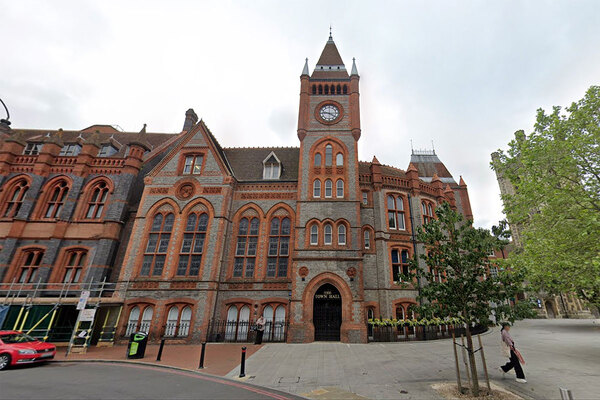You are viewing 1 of your 1 free articles
Housing lawyers warn of ‘catastrophic’ impact of caps on recovery costs for tenants
Housing lawyers have warned of the potentially “catastrophic” impact on their ability to provide legal aid if the government goes ahead with its plan of implementing fixed recoverable costs (FRCs) on housing cases.
In a letter to justice minister James Cartlidge and the Department for Levelling Up, Housing and Communities, a group of housing trade bodies and legal aid groups have said the plan to cap the amount of fees solicitors can recover from the losing parties in civil cases will cut their income by a quarter.
The signatories of the letter, which include Housing Law Practitioners Association, Legal Aid Practitioners Group (LAPG), Law Centres Network, Generation Rent and Shelter, said the changes meant there could be a “collapse” of legal aid in housing cases.
The bodies also warned that the introduction of FRCs could lead to some legal aid providers “ceasing to practise altogether”.
They are now calling for housing cases to be exempt from the plan and for further “detailed research to be carried out before costs reforms are considered in this area”.
Legal aid fees are set by the government and considerably lower than the fees lawyers can charge private paying clients.
When a legally aided client is successful, their lawyers do not claim from the legal aid fund but are able to recover their fees from the losing party at market rates.
As it stands, there is no cap on the fees lawyers can recover. However, the government is proposing to introduce FRCs for civil cases in England and Wales, similar to those introduced for personal injury claims.
FRCs set out the amount of legal costs that can be recovered by the winning party at different stages of litigation, from pre-issue to the court hearing.
This would involve any civil cases – including legally aided housing and disrepair cases – in the fast track up to a value of £100,000
FRC changes are expected in April 2023.
The group attached a report alongside the letter, called the Hawke Report, which was commissioned by the LAPG in response to the government’s plan and details the effect FRCs will have.
Hawke Legal, the consultancy that produced the report, said: “It appears likely that the reduction in viability caused by FRCs would lead to solicitors firms and not-for-profit organisations closing their housing departments.
“This in turn would reduce economies of scale, so that central overheads would not be able to be absorbed by other departments.
“This could lead to some legal aid providers ceasing to practise altogether.”
It found that on average legal aid providers would see their income fall by 25%.
On a sample of 131 typical cases, the report identified a fall in average fees from £10,583 per case to £5,588 – a drop of 47%.
It also found that the average income of a law centre or other not-for-profit housing legal aid provider would fall by 20% as a result of these proposal.
The report said: “While the government’s intention is an attempt to extend access to justice via the implementation of FRCs to limit legal costs for both claimants and defendants, we believe that, despite its previous consultation, the government is unaware of the potentially catastrophic financial effect the proposed FRC structure would have on legal aid providers that could lead to a collapse of legal aid in the housing category of law.”
In September 2021, the Ministry of Justice (MOJ) published a consultation response to introducing FRCs, but lawyers said it “was based on very little empirical evidence in relation to the impact on legal aid providers”.
An MOJ spokesperson told Inside Housing: “FRCs will enhance access to justice by helping parties to plan their litigation more effectively with a more informed view of a case.”
It follows the government cutting legal aid significantly for disrepair cases in 2013. Since then, people can only qualify for it in very extreme cases where their health is at risk or for counterclaims.
The warning also comes as barristers started striking this week over pay and conditions.
Many say they cannot make a living from the rates paid to them when they take on cases funded by legal aid.
Sign up for our legal and regulation newsletter
Already have an account? Click here to manage your newsletters










